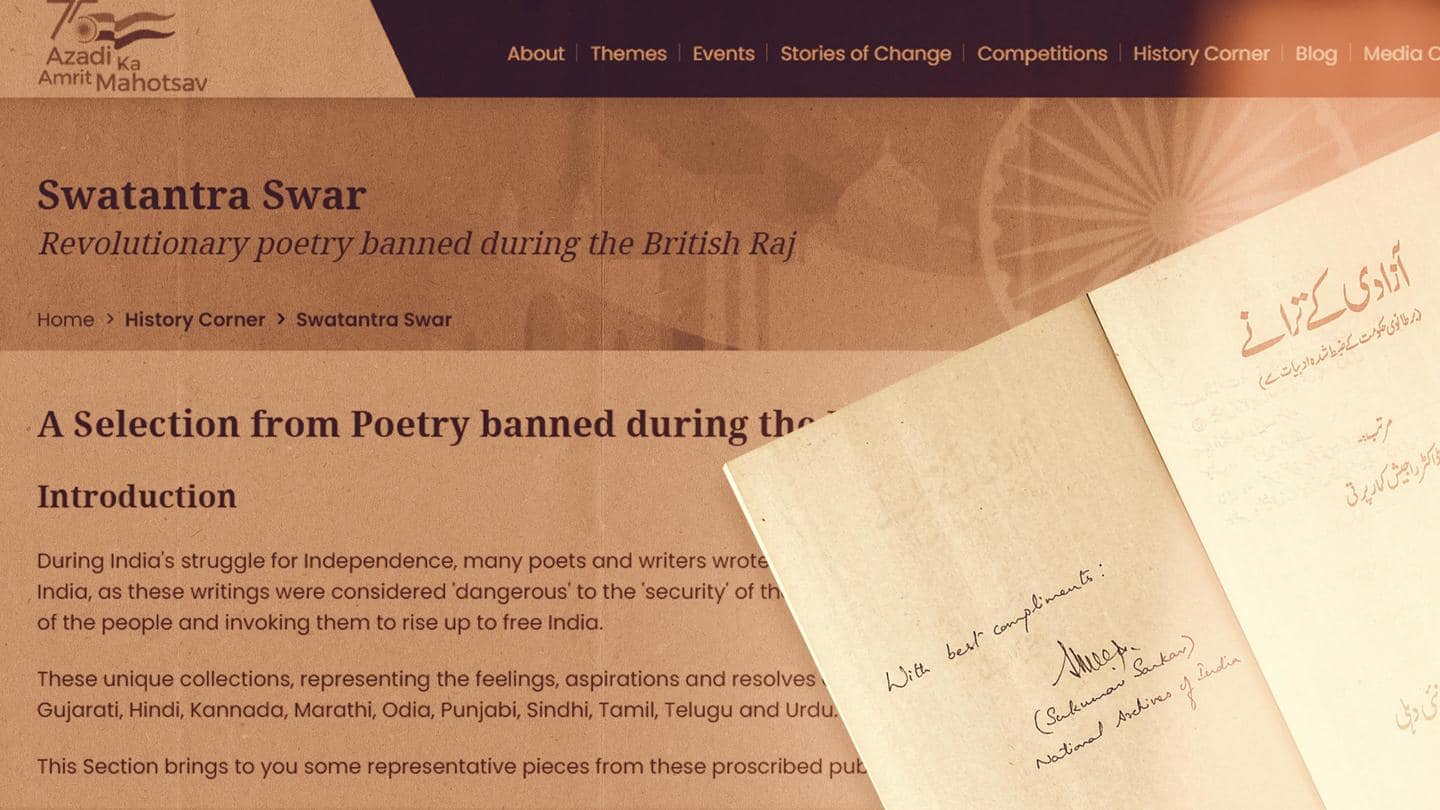Literature outlawed under British rule revived by central government
What's the story
The Centre has republished a body of writings banned under the British rule in India to mark the 75th year of Independence.
A number of union ministers have been engaged to help popularize the literature.
Many revolutionary pieces of literature were prohibited by the the British during India's fight for independence because they were deemed "dangerous" to the "security" of their reign in India.
Context
Why does this story matter?
'Azadi Ka Amrit Mahotsav' is an initiative of the government to commemorate the 75 glorious years of India's independence.
PM Modi launched a 75-week countdown to the 75th year of Independence on March 12, 2021, dedicating it to the people of India who have been instrumental in the country's evolutionary journey.
The aim of the program is to activate and celebrate India 2.0.
Swatantra Swar
'Amrit Mahotsav' website dedicated a section for the 'banned' literature
'Swatantra Swar,' is a section of the Amrit Mahotsav website, that contains poetry written before 1947 in languages like Bengali, Gujarati, Hindi, Kannada, Marathi, Odia, Punjabi, Sindhi, Tamil, Telugu, and Urdu.
Nine union ministers recite the poetry, including Culture Minister G Kishan Reddy, MoS Culture Meenakshi Lekhi, I&B Minister Anurag Thakur, Education Minister Dharmendra Pradhan, and Health Minister Mansukh Mandaviya.
Initiative
Union ministers engaged to popularize the poetry
Reddy recited the Telugu poetry "Bharatha Matha Geetham" by Vaddadhi Seetharaamanjaneyulu and Pudipeddhi Kashi Viswanatha Sashtri, while Thakur reads the Hindi poem "Rashtriya Pataka" by the authors of the book "Azaadi ki Bansuri."
Pradhan reads the Odia poem "Daridra Nian" by Gangadhar Mishra, while Mandaviya reads the Gujarati poem "Kasumbi No Rang" from Jhaverchand Meghani's Sindhudo collection.
Efforts
Selected poems, writings are available in nine languages
The poetry works, and publications that the British rule banned were selected by the Ministry of Culture, the nodal ministry for the 75-week-long Amrit Mahotsav festivities.
It compiled them into a collection, which the National Archives of India have published on its website.
These works are available in Bengali, Gujarati, Hindi, Marathi, Kannada, Odiya, Punjabi, Sindhi, Telugu, Tamil, and Urdu, among others.
Ban
Why did British ban the literary pieces?
The revolutionary writings were written during India's independence fight that was deemed "dangerous" to the "security" of British authority in India.
According to the Culture Department, the initiative is part of the 47,000 programs organized by it.
The programs include honoring unsung heroes of the independence movement to chronicling local history, from highlighting states and their contributions to the freedom war to banned poetry.
